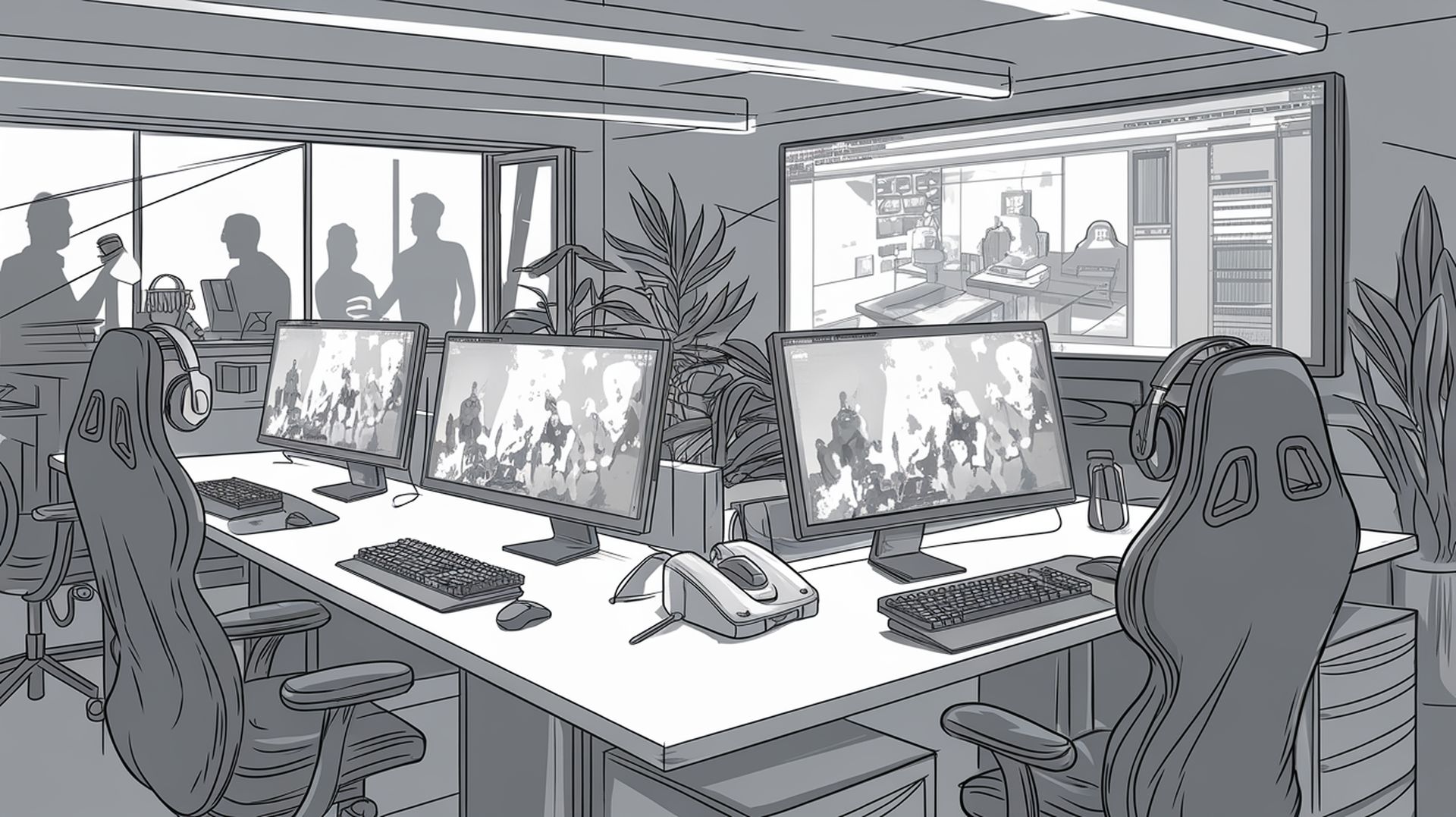In recent years, the gaming industry has grown to be one of the most profitable entertainment sectors worldwide, frequently making headlines with its billion-dollar revenues, groundbreaking technologies, and an ever-growing audience. The rapid expansion has fueled perceptions of the industry as nearly unstoppable, continually adapting and thriving despite global economic challenges.
However, recent findings from the Big Games Industry Employment Survey cast doubt on the sector’s future stability, raising questions about underlying issues that could impact growth and workforce retention. This comprehensive report reveals concerning trends, including a substantial wave of layoffs, income discrepancies, and a range of workplace challenges.
According to the survey, conducted by recruitment agency Values Value and career platform InGame Job, roughly 21% of gaming industry professionals across Europe experienced layoffs in the past year alone. While some managed to secure new positions within the industry, a significant portion of the workforce found themselves moving into other fields altogether, driven by frustrations over job instability and stagnant wages.
This pattern marks a stark contrast to the optimistic narrative of growth and innovation, showing instead an industry struggling with structural challenges.
Key finding: Instability in employment
The survey’s findings show that roughly 15% of European games industry workers who were laid off in the past year managed to find new roles.
However, over 6% are still actively searching for employment, highlighting a competitive job market that may lack the capacity to absorb displaced workers. Additionally, an alarming 10% of those affected by layoffs chose to leave the gaming industry altogether, indicating an increased likelihood of skilled professionals transitioning to other fields, especially in tech and media.

These layoff trends weren’t uniform across roles; some positions were disproportionately affected. HR and recruitment, QA (Quality Assurance), and artist roles faced the most significant cuts, as studios shifted resources toward more in-demand, technically specialized roles.
Furthermore, certain sectors—like localization, sound, and project management—are experiencing heightened job insecurity, with many professionals expressing concerns about potential layoffs.
Wage discrepancies and declining salaries
One of the most surprising insights from the survey is the notable discrepancy in wages between employees based in EU versus non-EU European countries. While overall salaries have seen a modest increase across roles, particular sectors like HR and recruitment saw year-on-year wage reductions, even for senior roles.
Tanja Loktionova, the founder of Values Value, observed that some mid-level and junior professionals in fields such as business development and QA have been especially impacted. While high-paying technical roles continue to attract lucrative salaries, other positions are stagnating or even seeing declines, creating frustration among mid-career professionals who are not seeing growth commensurate with the industry’s rising revenue.
Work culture in danger
The survey also highlights job dissatisfaction as a significant concern among gaming professionals, with burnout, poor management, and a lack of work-life balance frequently cited as reasons for frustration. The pressures of a “crunch culture,” where employees work intensive overtime to meet production deadlines, continue to be prevalent despite calls for reform.
This intense work environment has long been an issue in gaming, and the survey reveals it’s still impacting job satisfaction and retention rates.
Discrimination within the workplace, including:
- Gender
- Age
- National origin biases
was also reported by many respondents. Gender discrimination was the most frequently cited, affecting 32% of respondents, with age and national origin discrimination impacting 21% and 17%, respectively.
Remote work and AI integration continue to influence
Despite these issues, there are signs of positive change. Remote work, for example, remains a widely adopted practice, particularly in non-EU countries where 75% of companies operate either fully or partially remotely. This flexibility is a vital benefit for many employees, helping to alleviate burnout and improve work-life balance.

Additionally, the use of artificial intelligence (AI) tools is increasing rapidly; 54% of game developers now incorporate AI into their daily tasks, up from 37% the previous year. These technologies have the potential to reduce manual workloads, allowing professionals to focus on more creative and strategic tasks.
What does the future hold?
While revenue and player engagement are at an all-time high, the workforce within the gaming industry is grappling with structural challenges that may affect long-term growth. With a significant portion of the workforce experiencing layoffs, wage stagnation, and dissatisfaction, the industry faces the potential risk of a talent exodus. The survey suggests that without addressing these systemic issues, the gaming sector’s growth trajectory could stall as professionals seek greater stability and fair treatment elsewhere.
At the same time, there is room for optimism, particularly with the industry’s adaptability through remote work and AI. For gaming companies to sustain their growth and innovation, they may need to reevaluate their employment practices, ensuring that the industry remains an attractive and sustainable career choice for professionals in Europe and beyond.
The gaming industry is undoubtedly at a crossroads. Addressing these workforce challenges could help realize the industry’s full potential while offering a fair and rewarding environment for those who drive its creative engine.
Image credits: Emre Çıtak/Ideogram AI





